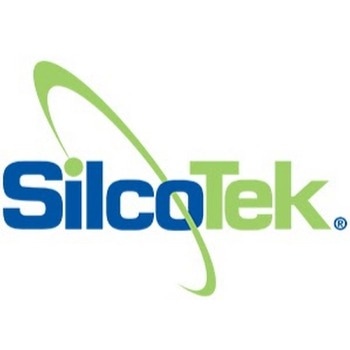.jpg)
SilicoTek® coatings are used in a wide range of applications. But where exactly are they used? This article discusses specific methods and standards where SilcoTek® coatings are used.
SilcoTek® coatings are used in a wide variety of applications ranging from process sampling, mold release, semiconductor manufacturing, hydrocarbon processing, analytical testing, oil and gas production and much more.
How are the coatings used in test methods and do SilcoTek coatings comply with specific industry standards? This article discusses some methods or applications that use SilcoTek® coatings. There are also many more applications and uses for these coatings.
This article discusses:
- How to improve the performance of flow paths used in specific applications or methods
- How SilcoTek® coatings are used in various industry standards and methods
- Benefits of using inert, corrosion resistant coatings in process flow paths
The methods listed may not specifically call out SilcoTek® coatings, some methods specify a performance criterion that can only be achieved by using inert coatings, other times products featuring SilcoTek® coatings or equivalent are called out.
Methods and related products used in the method application were searched to find industry approved or customer approved use of SilcoTek® coatings. For some applications, SilcoTek® is approved, in other uses SilcoTek® is referenced in tests of standards.
Some applications call out a specific coated component either by brand name or the by the customer brand. A wide net had been cast in order to enable the listing of as many standards and methods for various industries. Individual customers have their own approval process and methods which are not discussed. Customer approved uses are not listed as these are confidential. Here are some of the applications and benefits for some of the industries in which SilcoTek® coatings are used.
.jpg)
Benefits of Using Inert Silicon Coatings in Hydrocarbon Processing Applications
- Accurate and reliable sulfur test results
- Fewer test failures
- Faster response
- Faster calibration
What about NACE standard and MRO 175 (Materials for use in H2S containing environments)? SilcoTek® coatings do not comply with this standard because MRO 175 specifies the base metals that are approved for H2S environments, not coatings. Therefore, no coating will apply to MRO 175, only to base metals.
When SilcoTek® coatings are applied to MRO 175 approved metals the surface inertness and H2S detection will be improved. The base metal will continue to comply with MRO 175. Applying SilcoTek® coatings to non-compliant materials will not make them compliant, only more inert.
Medical and Pharmaceutical
.jpg)
Benefits to Medical and Pharma Testing
- Reduce analyte carryover and contamination
- Improved flow path corrosion resistance
- Prevent chemical adsorption
- Prevent protein binding and sticking
Semiconductor Manufacturing
.jpg)
Related Standards
Several component applications apply for corrosion resistance and purity. Other applications include:
- VOC Testing in cleanrooms, EPA TO-15
- Trimethylsilanol testing in semiconductor cleanroom
Air Quality
.jpeg)
Benefits to Air Quality Testing
- Improved peak resolution
- Improved sample stability during storage
- Consistent trace level test results, ppb and ppt test capability
Learn more about key factors in producing reliable VOC analysis.
Environment Testing
.jpg)
Related Standards
- EPA 552.2 Haloacetic acids, dalapon
- EPA 508.1 Chlorinated pesticides
- EPA 505 Organohalide pesticides
- EPA 504.1 EDB, DBCP, TCP
- EPA 8151 Chlorinated herbicides
- EPA 8082A PCBs
- EPA 8081B Organochlorine pesticides
Benefits to Environmental Testing
- High durability surface ideal for field testing
- Improved sample stability during sample collection and transfer
- Improved low level detection
- Higher test peak resolution
About Corrosion Resistance
.jpg)
SilcoTek® coatings are also tested to various corrosion standards. In this case SilcoTek® coatings are not part of the test method, they are the focus of the testing. Corrosion testing applies to many industries and for this reason it is beneficial to list some of the methods used to evaluate SilcoTek® coatings for corrosion resistance.
The coatings have been successfully tested for corrosion resistance using the following standards:
- ASTM D4585, condensing humidity
- ASTM G85, Salt Spray
- ASTM B117, Salt Spray
- ASTM G48, Method B2 – ferric chloride pitting and crevice corrosion
- ASTM G31, Immersion Testing
- ASTM G85-A2, Acidified Salt Spray
Corrosion Resistance Benefits
- High tolerance coating does not alter part fit or geometry
- Extend the life of existing components
- Improve corrosion performance using existing materials and design

This information has been sourced, reviewed and adapted from materials provided by SilcoTek.
For more information on this source, please visit SilcoTek.